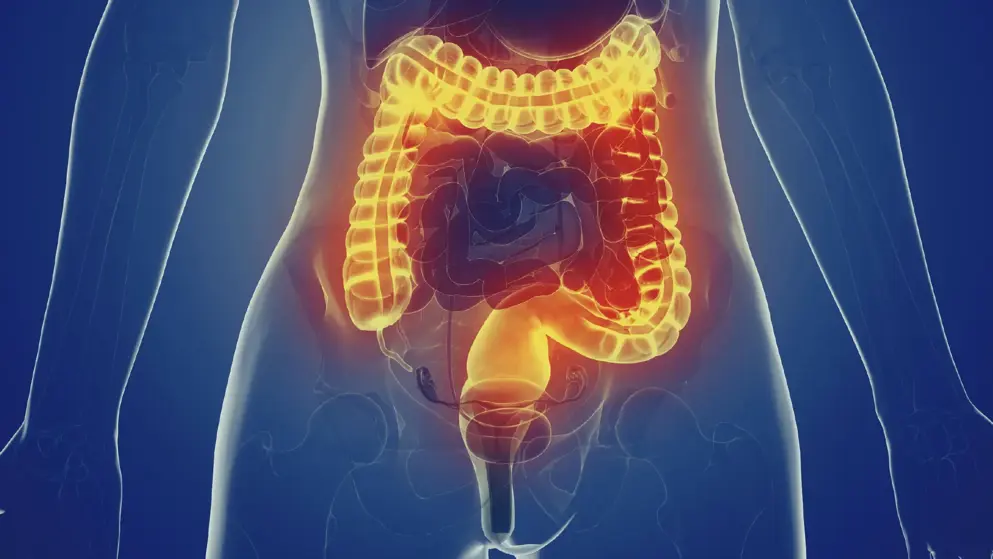
Rinvoq achieved clinical remission and endoscopic response at one year in phase III maintenance study in patients with Crohn's disease
AbbVie announced positive topline results from U-ENDURE, its Phase III maintenance study evaluating upadacitinib in adult patients with moderate to severe Crohn's disease who had an inadequate response or were intolerant to a conventional or biologic therapy.
The results showed that more patients treated with either dose of upadacitinib (15 mg or 30 mg once daily) achieved the co-primary endpoints of endoscopic response and clinical remission, as well as the secondary endpoint of endoscopic remission, at one year (week 52) compared to placebo. Use of upadacitinib in Crohn's disease has not been evaluated by health authorities.
Results from the U-ENDURE maintenance study, in addition to results from the U-EXCEED and U-EXCEL induction studies, will be included in future regulatory submissions.
In the U-ENDURE maintenance study, patients from U-EXCEED and U-EXCEL who responded to 12 weeks of upadacitinib 45 mg oral induction treatment were re-randomized to receive upadacitinib 15 mg, upadacitinib 30 mg, or placebo. Clinical remission was defined by the Crohn's Disease Activity Index (CDAI) or by stool frequency and abdominal pain score (SF/AP). A significantly higher proportion of patients who received upadacitinib 15 mg or 30 mg achieved clinical remission per the CDAI at week 52: 37 and 48 percent, respectively, versus 15 percent in the placebo group (p<0.0001). results also showed that 36 and 46 percent of patients who received upadacitinib 15 mg and 30 mg, respectively, achieved clinical remission at week 52 per sf ap compared to 14 percent in the placebo group (p><0.0001). at week 52, 28 and 40 percent of patients who received upadacitinib 15 mg and 30 mg, respectively, achieved endoscopic response compared to 7 percent of patients who received placebo (p><0.0001). in addition, 19 and 29 percent of patients who received upadacitinib 15 mg and 30 mg achieved endoscopic remission, respectively, compared to 5 percent of patients in the placebo group (p><0.0001). a significantly higher proportion of patients who received upadacitinib 15 mg or 30 mg achieved corticosteroid-free clinical remission per cdai and per sf ap compared to placebo at week 52 among patients taking corticosteroids at baseline.
"Symptomatic relief as well as healing of the intestinal mucosa in Crohn's disease are important long-term treatment targets which may be associated with slowing disease progression and better quality of life for patients," said Julian Panes, Emeritus Professor of Medicine and the Chief of the IBD Unit at Hospital Clínic de Barcelona and lead study investigator. "These results are encouraging and would be particularly important for patients who have not found relief with other conventional or biologic treatment options."
The safety results of upadacitinib (15 mg or 30 mg) were generally consistent with the safety profile observed in the Phase III induction studies in Crohn's disease, as well as the known safety profile of upadacitinib. No deaths were reported throughout the study and no new safety risks were identified.
A total of 673 patients completed the 12-week upadacitinib induction treatment with clinical response and received at least one dose of the study drug in the placebo-controlled maintenance period. The most common adverse events in the upadacitinib groups were exacerbation of Crohn's disease, arthralgia and pyrexia. Serious adverse event and serious infection event rates per 100 patient years were the following for placebo, upadacitinib 15 mg, and upadacitinib 30 mg groups, respectively: 37.4/8.4, 25.0/6.1, 21.0/7.8. Malignancies (excluding non-melanoma skin cancer [NMSC]) reported in the study included one event in the upadacitinib 15 mg group, two events in the upadacitinib 30 mg group and no events in the placebo group. No adjudicated thrombotic events were reported in the upadacitinib 15 mg and placebo groups; one adjudicated hepatic vein thrombosis was reported in the upadacitinib 30 mg group. No adjudicated major adverse cardiovascular event (MACE) was reported in any treatment group. One patient each in the upadacitinib 15 mg, 30 mg and placebo groups experienced an event of adjudicated gastrointestinal perforation.
The U-ENDURE Phase III study was designed to evaluate the efficacy and safety of upadacitinib as maintenance therapy versus placebo in patients with moderate to severe Crohn's disease who responded to upadacitinib induction treatment in the U-EXCEED or U-EXCEL induction studies. Full results from the U-ENDURE study maintenance period will be presented at upcoming medical conferences and published in a peer-reviewed medical journal. Use of upadacitinib in Crohn's disease is not approved and its safety and efficacy have not been evaluated by regulatory authorities.

